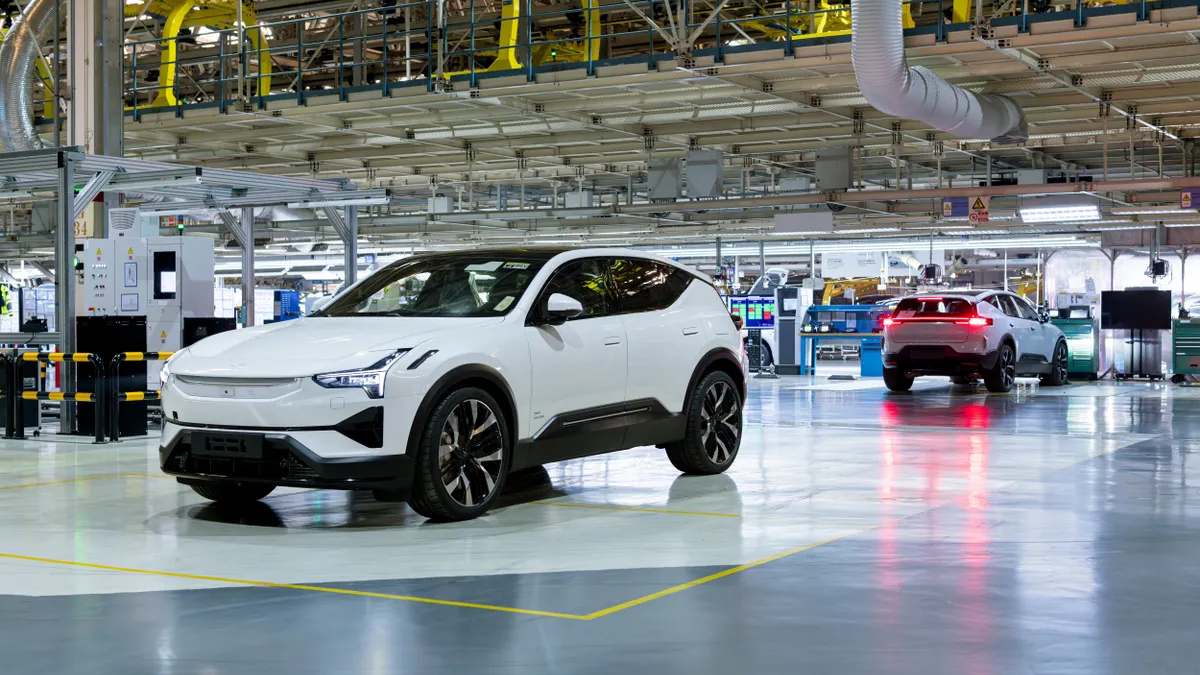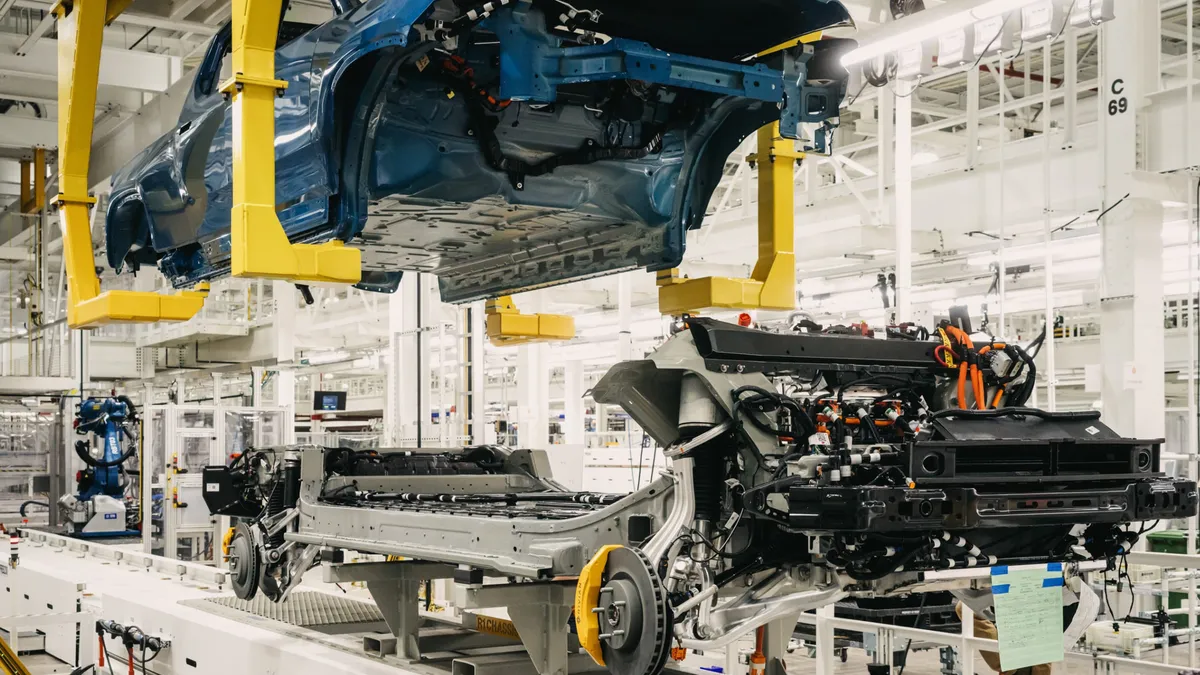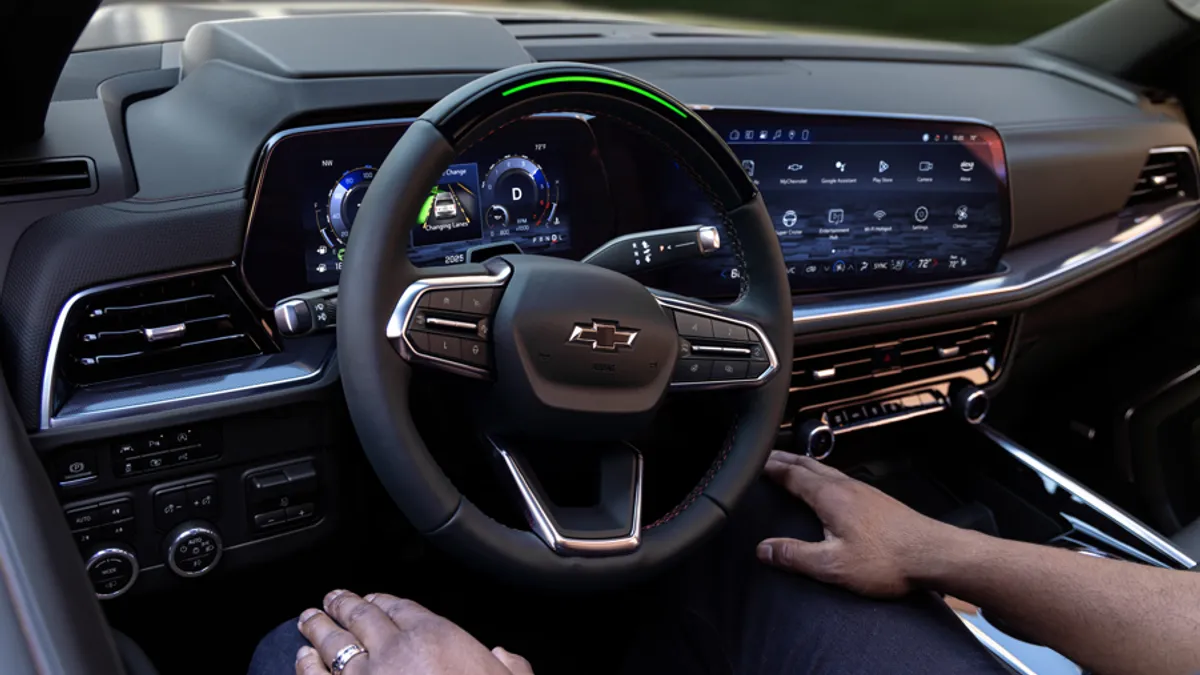Polestar’s sales in North America may be impacted by the Biden administration’s increased tariffs on electric vehicles, batteries and other critical raw materials imported from China.
The automaker, which is owned by a combination of Geely Holding and Volvo Cars, is gearing up to launch its new Polestar 3 electric crossover later this year. The EV entered production in Chengdu, China in February, and additional production for the North American market is slated to start at Volvo’s factory in Ridgeville, South Carolina by mid-2024.
“This important SUV for us will be built in the USA for U.S. and Canadian customers as well as for export to European markets,” a Polestar spokesperson wrote in an email to Automotive Dive in May.
But now Polestar might need to account for higher costs as a result of the new tariffs when pricing its vehicles. The Polestar 3’s starting MSRP is $73,400, according to the company’s website, although the EV was priced before the higher tariffs were announced.
Polestar sources batteries from China-based CATL, but now tariffs on batteries manufactured in China have jumped from 7.5% to 25%. In addition, the tariff rate on graphite, a key raw material for batteries, will increase from zero to 25% in 2026. China produced around 70% of the global supply of graphite as of 2022, according to the International Energy Agency, which is used to produce battery anodes.
The rising costs on battery imports from China may also make it harder for automakers to improve margins on EVs. While the price of lithium-ion battery packs dropped to a record low of $139 per kilowatt hour in 2023, according to Bloomberg data, CATL had 37% share of global EV battery sales in 2022.
“We are currently evaluating the announcement of tariff increases from the Biden Administration,” the Polestar spokesperson said in an email. “As a global company headquartered in Sweden, listed on Nasdaq in New York and operating across 27 markets, we believe that free trade is essential to speed up the transition to more sustainable mobility through increased EV adoption.”
Polestar was launched by Geely and Sweden's Volvo Cars in 2017 as a new standalone EV brand. Last month, Polestar announced changes to its ownership structure, with Geely becoming a major new shareholder, with around a 24% stake, while Volvo Cars retaining a strategic 18% stake.
Despite its ownership structure, the tariffs' immediate impacts on Polestar and other automakers remains unclear.
In addition to the added costs on battery imports from China, the Biden administration also announced plans to raise tariffs on EVs produced in China. The import tax would now be 100%, up from an existing 25% tariff.
Although the tariffs are meant to protect the U.S. market from a rise in EV exports from China to the United States, few China-made electric vehicles are sold in the country. Geely was the only automaker to export vehicles from China to the U.S. in the first quarter of 2024, for a total of just 2,217 cars, Reuters reported using data from the China Passenger Car Association.
In April, Polestar said it delivered approximately 7,200 EVs globally in the first quarter of 2024, including 1,200 Polestar 4 units in China. The company announced Friday that it expects to disclose full-year 2023 and Q1 financial results by the end of June.














